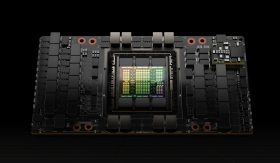Microsoft, NVIDIA Bet $1 Billion on Wayve Autonomous Car Software

Wayve, a UK-based startup specializing in autonomous vehicle technology, has scored $1.05 billion in Series C funding from SoftBank, NVIDIA, and Microsoft in a move that highlights a trending form of artificial intelligence called embodied AI.
Founded in 2017 by Alex Kendall (ex-Trinity College, Cambridge, and Scape Technologies) and Amar Shah (ex-Goldman Sachs, NASA), Wayve specializes in AI that doesn’t learn only from static data as do large language models (LLMs) but from stimuli in the real-world environment. This is the concept of embodied AI, which is the technology behind robots such as Tesla’s Optimus Gen 2.
In Wayve’s case, the product series called AI Driver is a kind of software robot that uses a variety of technologies, including generative AI natural language models, sensors, and computer vision, to enable autonomous vehicles to spot trouble and make adjustments—to halt when a pedestrian is crossing the street, for example. The combination of AI tools comprise an embodied AI system the vendor claims is capable of safer-than-human driving.
Indeed, autonomous driving technology demands a focus on safety, according to CEO Kendall. “The autonomous driving domain is a major driver of AI safety innovation, pushing AI systems to handle complex, unpredictable real-world scenarios,” Kendall wrote in a blog post this week. He sees a societal benefit to his product thanks to its potential to save lives and avert injuries from road accidents.
Funders Contributing More Than Money
It’s not just interest in embodied AI that has NVIDIA and Microsoft throwing money at Wayve. The tools and tech required to launch Wayve’s products rely on their partnership.
“Wayve is pioneering new AI applications for their next-generation AV2.0 approach, built on NVIDIA DRIVE Orin and DRIVE Thor [systems-on-a-chip], which uses the new NVIDIA Blackwell architecture designed for transformer, LLM, and Generative AI workloads,” stated Rishi Dhall, Vice President of Automotive Business at NVIDIA, in a press release.
For its part, Microsoft’s Corporate VP of Manufacturing and Mobility, Dominik Wee, said in the same release:
“By utilizing Microsoft’s supercomputing capabilities and cloud computing technology, copilot-enabled developer platform, enterprise data management applications, and leading AI model commercialization expertise, Wayve can deliver and scale innovative Embodied AI solutions that enable safer and more accessible autonomous driving experiences.”
Not Tied to a Single Car
Wayve’s strategy is to trial and then sell its AI Driver series to a variety of automotive manufacturers, not just one as in Tesla’s model. So far, Wayve’s software has been installed in Ford Mustangs and Jaguar cars and trialed on UK public roads since 2018, including with UK auto-delivery companies Asda and Ocado Group. The Wayve AI Driver series is offered in packages that enable various levels of autonomous driving, from hands-free driving assistance to full-on driverless cars.

A Wayve-enabled van roams the public streets. Source: Wayve
Wayve isn’t limiting its future to the auto world, though execs say that’s where the low-hanging fruit for embodied AI is. CEO Kendall wrote in his blog:
“The autonomous driving market offers significant commercial potential, projected to exceed $100 billion with Advanced Driver Assistance Systems (ADAS) even before full autonomy is reached. This is a sector that can support steady technological advancements and business growth, introducing AI-powered driving automation gradually to build consumer acceptance and trust over time…”
But Can It Work?
Autonomous vehicles haven’t done well in the market. Accidents, regulatory problems, and technological complexities have hindered or delayed commercial ventures from some of the world’s largest companies. Still, Wayve says it’s different due to its “end-to-end” approach to embodied AI, which draws on multiple technologies and relies on a safe and measured rollout.
It may be awhile before AI Driver makes it to market, and CEO Kendall told Bloomberg News:
“We’re not releasing specific launch timelines at this stage. But we’re busy working with a number of manufacturers toward this point and it’s going to be an exciting day when it comes.”
Wayve has plenty of funding toward that day. The Series C funding of $1.05 billion from new investors NVIDIA and SoftBank and existing backer Microsoft brings the company’s total raised to $1.308 billion. Other investors have included Eclipse Ventures, D1 Capital Partners, Baillie Gifford, Moore Strategic Ventures, Balderton Capital, Virgin, Ocado Group, Sir Richard Branson, Rosemary Leith, and Yann LeCun.
Wayve has 290 employees and is headquartered in London, England, with an office in Mountain View, Calif. An office in Vancouver, British Columbia, is planned to open in summer 2024.
Futuriom Take: Wayve’s massive Series C calls attention to embodied AI, which learns from the live environment, and NVIDIA and Microsoft's faith in Wayve is also a vote for the tech. If Wayve can manage to commercialize a true self-driving platform, it could mean a watershed for the technology in other areas besides automotive.




